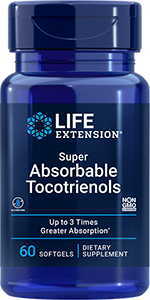 | February 12, 2010 | Mediterranean diet may be brain-protective | | A presentation scheduled for the American Academy of Neurology's 62nd Annual Meeting in Toronto April 10 to April 17, 2010 will reveal the finding of Nicolaos Scarmeas, MD, MSc at Columbia University Medical Center in New York that consuming a Mediterranean diet may help preserve memory and learning ability by protecting against cerebrovascular disease. The diet typically consumed in the Mediterranean region provides high amounts of fruits, vegetables, legumes, cereal, fish, and monounsaturated fats, low levels of saturated fats, red meat and poultry, and a moderate amount of alcohol. In previous research conducted by Scarmeas and his colleagues, an association was found between adherence to a Mediterranean diet and a lower risk of developing Alzheimer's disease in addition to improved survival among Alzheimer's disease patients. For the current study, Dr Scarmeas' team performed magnetic resonance imaging (MRI) scans on the brains of 712 New York residents who participated in the Washington Heights-Inwood Columbia Aging Project. Dietary assessments administered an average of 5.8 years earlier were evaluated for Mediterranean diet adherence. Two hundred thirty-eight subjects had at least one infarct (an area of the brain damaged by reduced blood circulation which occurs in cerebrovascular disease) revealed by MRI. Men and women whose adherence to a Mediterranean diet was among the top one-third of participants had a 36.1 percent lower probability of infarct compared to those whose adherence was lowest, and those in the middle third had a 21 percent lower risk. The association did not vary by infarct size and was stronger in women than in men. "The relationship between this type of brain damage and the Mediterranean diet was comparable with that of high blood pressure," Dr Scarmeas observed. "In this study, not eating a Mediterranean-like diet had about the same effect on the brain as having high blood pressure." The authors conclude that "Higher adherence to a Mediterranean diet is associated with reduced cerebrovascular disease suggesting that the impact of a Mediterranean diet on cognition may be partially mediated by brain infarction." | |  |  | | Cerebrovascular disease, including stroke, is the third-leading cause of death in the United States and a leading cause of disability among older Americans. Cerebrovascular disease occurs when the blood vessels supplying the brain with oxygenated blood are damaged or their function is compromised. If the blood flow is severely restricted, depriving the brain of adequate oxygen even briefly, a stroke can occur. As with atherosclerosis in the coronary arteries (coronary artery disease), the underlying cause of ischemic stroke can often be traced back decades, to early insults to the inner lining (endothelium) of the arteries that set a deadly chain reaction into motion. Now that they have identified endothelial dysfunction as a fundamental process of cardiovascular and cerebrovascular disease, along with the prime risk factors for endothelial dysfunction, such as high blood pressure and smoking, researchers are pursuing new therapies aimed at stroke prevention by improving the health of our arteries. Multiple studies have found that a diet high in fruits and vegetables lowers risk of cerebrovascular disease and both ischemic and hemorrhagic stroke (Gariballa SE 2000; Sauvaget C et al 2003). Two major reviews recommended that public health policy promote increased dietary intake of antioxidant vitamin C, beta-carotene, vitamin E, B vitamins (including folate), potassium, calcium, magnesium, vitamin D, fiber, and omega-3 fatty acids to reduce risk of stroke (Gariballa SE 2000; Johnsen SP 2004). These vital nutrients can also be obtained through dietary supplements in conjunction with a healthy diet. | Video: Lose weight and keep it off, by Dr Michael A. Smith 
Dr Michael A. Smith presents ways to supplement your diet and exercise program with innovative nutrients to help you maintain a healthy weight. Designed to support any diet and exercise program approved by your doctor, this lecture series video introduces safe steps to successfully burn fat, lose weight, and keep it off. 
https://www.lifeextension.com/health-basics/podcasts-video-media/ | |  | Super-Absorbable Tocotrienols   | Super Absorbable Tocotrienols combats the underlying causes of hair loss, supporting otherwise healthy hair follicles that genetic disposition, advancing age, high concentrations of DHT (the male hormone dihydrotestosterone), and sebum build-up may cause to weaken, degrade or shrink. Super Absorbable Tocotrienols, a natural, orally administered, bio-enhanced tocotrienol complex, can be taken to support youthful hair thickness and growth. A revolutionary, patented delivery system ensures optimal absorption and efficiently delivers the benefits of a unique proprietary complex of naturally extracted phytonutrients (squalene, phytosterols and trace amounts of mixed carotene) together with tocotrienols to support youthful hair growth, hair health and hair density. In a study involving 30 volunteers who took tocotrienol supplements for eight months, nearly all subjects showed significant improvement in hair thickness and density. | | |   | | Scientific studies show that excess arachidonic acid increases levels of the 5-lipoxygenase (5-LOX) enzyme, which can induce undesirable effects in cells. This culminates in the excess accumulation of leukotriene B4, a pro-inflammatory compound that attacks the joints, the arterial wall, and other tissues. In India, extracts from the Boswellia plant have been used for centuries as fluid-balancing agents. Recent human studies have confirmed that a specific Boswellia extract known as AKBA (3-O-acetyl-11-keto-ß-boswellic acid) selectively inhibits 5-LOX. Unlike other boswellic acids that only partially inhibit 5-LOX, AKBA binds directly to 5-LOX, effectively suppressing its pro-inflammatory activity. | | | |  | Life Extension Update | What's Hot | Life Extension Magazine® | |


















